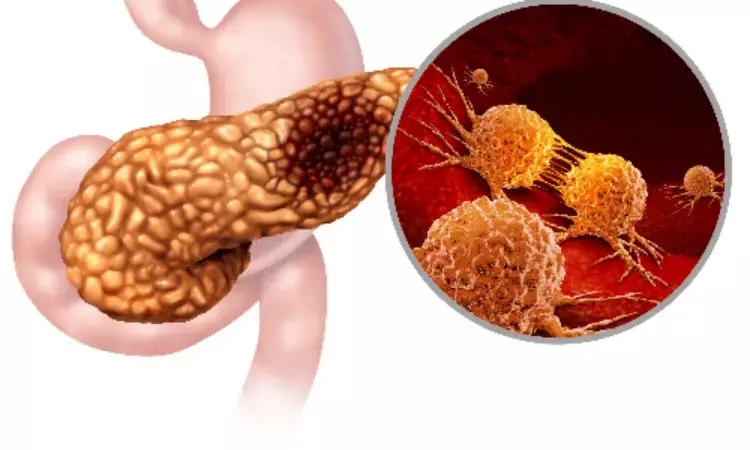- Home
- Medical news & Guidelines
- Anesthesiology
- Cardiology and CTVS
- Critical Care
- Dentistry
- Dermatology
- Diabetes and Endocrinology
- ENT
- Gastroenterology
- Medicine
- Nephrology
- Neurology
- Obstretics-Gynaecology
- Oncology
- Ophthalmology
- Orthopaedics
- Pediatrics-Neonatology
- Psychiatry
- Pulmonology
- Radiology
- Surgery
- Urology
- Laboratory Medicine
- Diet
- Nursing
- Paramedical
- Physiotherapy
- Health news
- Fact Check
- Bone Health Fact Check
- Brain Health Fact Check
- Cancer Related Fact Check
- Child Care Fact Check
- Dental and oral health fact check
- Diabetes and metabolic health fact check
- Diet and Nutrition Fact Check
- Eye and ENT Care Fact Check
- Fitness fact check
- Gut health fact check
- Heart health fact check
- Kidney health fact check
- Medical education fact check
- Men's health fact check
- Respiratory fact check
- Skin and hair care fact check
- Vaccine and Immunization fact check
- Women's health fact check
- AYUSH
- State News
- Andaman and Nicobar Islands
- Andhra Pradesh
- Arunachal Pradesh
- Assam
- Bihar
- Chandigarh
- Chattisgarh
- Dadra and Nagar Haveli
- Daman and Diu
- Delhi
- Goa
- Gujarat
- Haryana
- Himachal Pradesh
- Jammu & Kashmir
- Jharkhand
- Karnataka
- Kerala
- Ladakh
- Lakshadweep
- Madhya Pradesh
- Maharashtra
- Manipur
- Meghalaya
- Mizoram
- Nagaland
- Odisha
- Puducherry
- Punjab
- Rajasthan
- Sikkim
- Tamil Nadu
- Telangana
- Tripura
- Uttar Pradesh
- Uttrakhand
- West Bengal
- Medical Education
- Industry
Islet Autoantibodies Signal Faster Diabetes Onset in Children with Pancreatitis: Study

A study published in Diabetes Care has revealed that children with acute recurrent or chronic pancreatitis who test positive for islet autoantibodies experience a quicker progression to diabetes and greater beta-cell dysfunction. These children also exhibit higher HbA1c levels and reduced C-peptide levels compared to those without autoantibodies. The study was conducted by Gila G. and fellow researchers. This finding emphasizes the significance of discovering islet Ab in this group to forecast diabetes risk and track β-cell function.
This cross-sectional retrospective study examined data from 234 children with ARP/CP who have been tested for islet Ab. Of them, 28 children (12%) were Ab-positive, and 206 children (88%) were Ab-negative. The study investigated the prevalence of Ab and their impact on indices of insulin secretion during mixed meal tolerance testing (MMTT) as well as on the development of diabetes.
The study consisted of 234 young patients with ARP/CP who were analyzed for islet Ab. The Ab+ category consisted of 28 patients (12%), while the Ab− category consisted of 206 patients (88%). Fasting glucose and HbA1c levels were assessed, and MMTT was carried out in 183 of the 234 individuals (78%). MTT-derived indices of insulin secretion between Ab+ and Ab− groups were compared.
Results
No age, sex, race, ethnic, BMI percent, or fasting glucose differences between the Ab+ and Ab− groups were evident. Within the Ab+ group, 54% had single Ab+, while 46% had multiple Ab+. The primary findings were as follows:
• Higher HbA1c within the Ab+ group (median 5.7% compared with 5.2%, P < 0.01).
• Lower levels of C-peptide within the Ab+ group (median 2.4 compared with 3.7 ng/mL, P = 0.01).
• Increased ratio of prediabetes/diabetes in the Ab+ group (57% vs. 32%, P < 0.001).
• Earlier time from initial acute pancreatitis episode to development of diabetes in the Ab+ group (P = 0.02).
Survival analysis indicated that children with islet Ab+ had a significantly shorter interval from the initial episode of acute pancreatitis to diabetes onset compared to Ab− children. This indicates that islet Ab+ is associated with β-cell dysfunction in this group of children.
The research concluded that islet Ab positivity in pediatric ARP/CP was linked to increased HbA1c, decreased levels of C-peptide, greater risk of type 1 diabetes development, and reduced time of diabetes onset. These results call for early diagnosis and follow-up of islet Ab in ARP/CP in children to intervene in diabetes risk efficiently.
Reference:
Gila Ginzburg, Lindsey Hornung, Lee Denson, Amy S. Shah, Sarah Swauger, Jonathan Tatum, Siobhan Tellez, Deborah Elder, Melena D. Bellin, Maisam Abu-El-Haija; Islet Autoantibodies and Their Association With β-Cell Function and Diabetes Measures in Children With Acute Recurrent and Chronic Pancreatitis. Diabetes Care 2025; dc242672. https://doi.org/10.2337/dc24-2672
Dr Riya Dave has completed dentistry from Gujarat University in 2022. She is a dentist and accomplished medical and scientific writer known for her commitment to bridging the gap between clinical expertise and accessible healthcare information. She has been actively involved in writing blogs related to health and wellness.
Dr Kamal Kant Kohli-MBBS, DTCD- a chest specialist with more than 30 years of practice and a flair for writing clinical articles, Dr Kamal Kant Kohli joined Medical Dialogues as a Chief Editor of Medical News. Besides writing articles, as an editor, he proofreads and verifies all the medical content published on Medical Dialogues including those coming from journals, studies,medical conferences,guidelines etc. Email: drkohli@medicaldialogues.in. Contact no. 011-43720751


